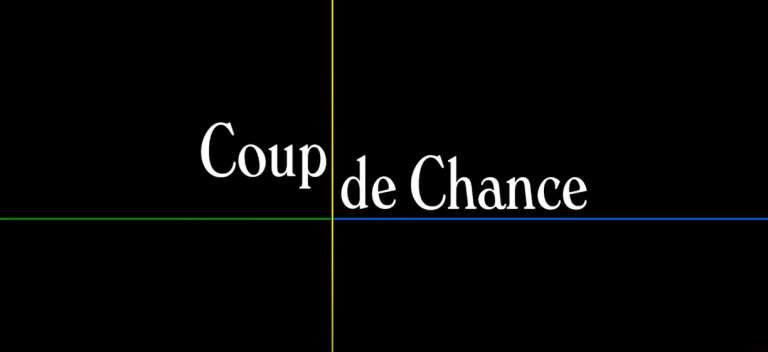

“Femme,” a film written and directed by Ng Choon Ping and Sam H. Freeman, offers a compelling narrative that delves into the gritty territory of vengeance and the aftermath of anti-LGBTQ+ violence. Drawing inspiration from classic revenge tales, the movie boasts a stylish aesthetic while tackling challenging themes that urge viewers to question the morality of seeking retribution.
At its core lies Jules, portrayed by the captivating Nathan Stewart-Jarrett, a mesmerizing drag performer whose talent enchants audiences. Supported by loyal friends like Toby, played by John McCrea, and Alicia, portrayed by Asha Reid, Jules revels in the adoration of his club fans. However, his world is shattered when he encounters Preston, a menacing figure portrayed by George MacKay, whose animosity towards Jules leads to a violent altercation outside a club. This incident, recorded by Preston’s companions, leaves Jules emotionally scarred.

The aftermath of the attack transforms Jules in unexpected ways. He withdraws from the limelight, shedding his flamboyant persona for a more subdued appearance, forsaking makeup for baggy clothes. Yet, the trauma festers within him, fueling a desire for retribution. A fateful encounter with Preston at a bathhouse reignites Jules’ simmering rage, offering him an opportunity for revenge.
As Jules grapples with the prospect of vengeance, the film delves into the complexities of justice and morality. Can retaliation truly rectify the wrongs inflicted? The narrative challenges viewers to ponder this question as Jules navigates a morally ambiguous path. Encouraged by his friends, Jules confronts Preston, leading to a gripping climax that forces audiences to confront their beliefs about justice and forgiveness.

“Femme” transcends being merely a stylish revenge flick; it’s a thought-provoking exploration of the human psyche and the repercussions of unbridled violence. Through its compelling characters and gripping storyline, the film leaves a lasting impact, compelling viewers to confront uncomfortable truths about society’s treatment of marginalized communities.
In “Femme,” the narrative walks a fine line between seeking revenge and empowering oneself. Jules, brilliantly portrayed by Nathan Stewart-Jarrett, devises a plan to seduce Preston, his assailant, with the intention of publicly humiliating him by sharing their affair on a pornographic website, thus exposing him to the world. In Jules’ eyes, this retaliation mirrors the humiliation he endured at Preston’s hands. However, the film raises profound questions about the ethics of such actions, particularly in the context of LGBTQ+ violence.

Outing someone, as depicted in the film, is deemed a form of LGBTQ+ violence, and Jules’ decision to pursue this course of action raises complex moral dilemmas. The narrative draws parallels between Jules’ experience and that of the protagonist in the filmmakers’ previous short film, which also explores themes of seduction and revenge. Yet, the focus on a queer person of color subjecting themselves to further harm in order to exact revenge on a self-loathing homophobe prompts reflection on the perpetuation of trauma.
The directorial duo, in collaboration with cinematographer James Rhodes, craft a visually stunning cinematic experience. Each setting, from the vibrant club scenes reminiscent of a music video to the atmospheric neo-noir aesthetics of the bathhouse, is meticulously designed to mirror the emotional journey of the characters. The cinematography adeptly reflects Jules’ fluctuating emotions, from moments of chilling isolation to glimpses of warmth and intimacy shared with friends.

Despite its polished exterior, “Femme” grapples with raw and challenging themes, particularly the pain and trauma experienced by LGBTQ+ individuals. The performances of Stewart-Jarrett and George MacKay, who portrays Preston, are commendable in capturing the inner turmoil and external conflicts of their characters. However, the film’s focus on the darker aspects of LGBTQ+ existence may overshadow moments of joy and resilience.
Ultimately, “Femme” offers a nuanced exploration of reclaiming power and identity in the face of hate and violence. While Jules’ methods may not be universally applicable, the film invites audiences to reflect on the complexities of LGBTQ+ existence and the multifaceted nature of revenge and healing.

| Aspect | Description |
|---|---|
| Plot | A compelling narrative delving into vengeance and the aftermath of anti-LGBTQ+ violence, drawing inspiration from classic revenge tales. |
| Characters | Jules (Nathan Stewart-Jarrett), a mesmerizing drag performer seeking revenge; supported by loyal friends Toby (John McCrea) and Alicia (Asha Reid); antagonist Preston (George MacKay). |
| Themes | Justice, morality, revenge, empowerment, LGBTQ+ violence, trauma, identity, and power dynamics. |
| Visuals/Cinematography | Visually stunning with vibrant club scenes and atmospheric neo-noir aesthetics, mirroring characters’ emotional journey. Cinematography reflects fluctuating emotions and intimate moments. |
| Performances | Nathan Stewart-Jarrett and George MacKay deliver commendable performances, capturing inner turmoil and external conflicts effectively. |
| Moral Complexity | Raises profound questions about the ethics of seeking revenge, particularly in the context of LGBTQ+ violence. Explores complexities of reclaiming power and identity amidst trauma. |
| Impact | Thought-provoking exploration of human psyche and societal treatment of marginalized communities. Invites reflection on the perpetuation of trauma and the multifaceted nature of revenge. |






